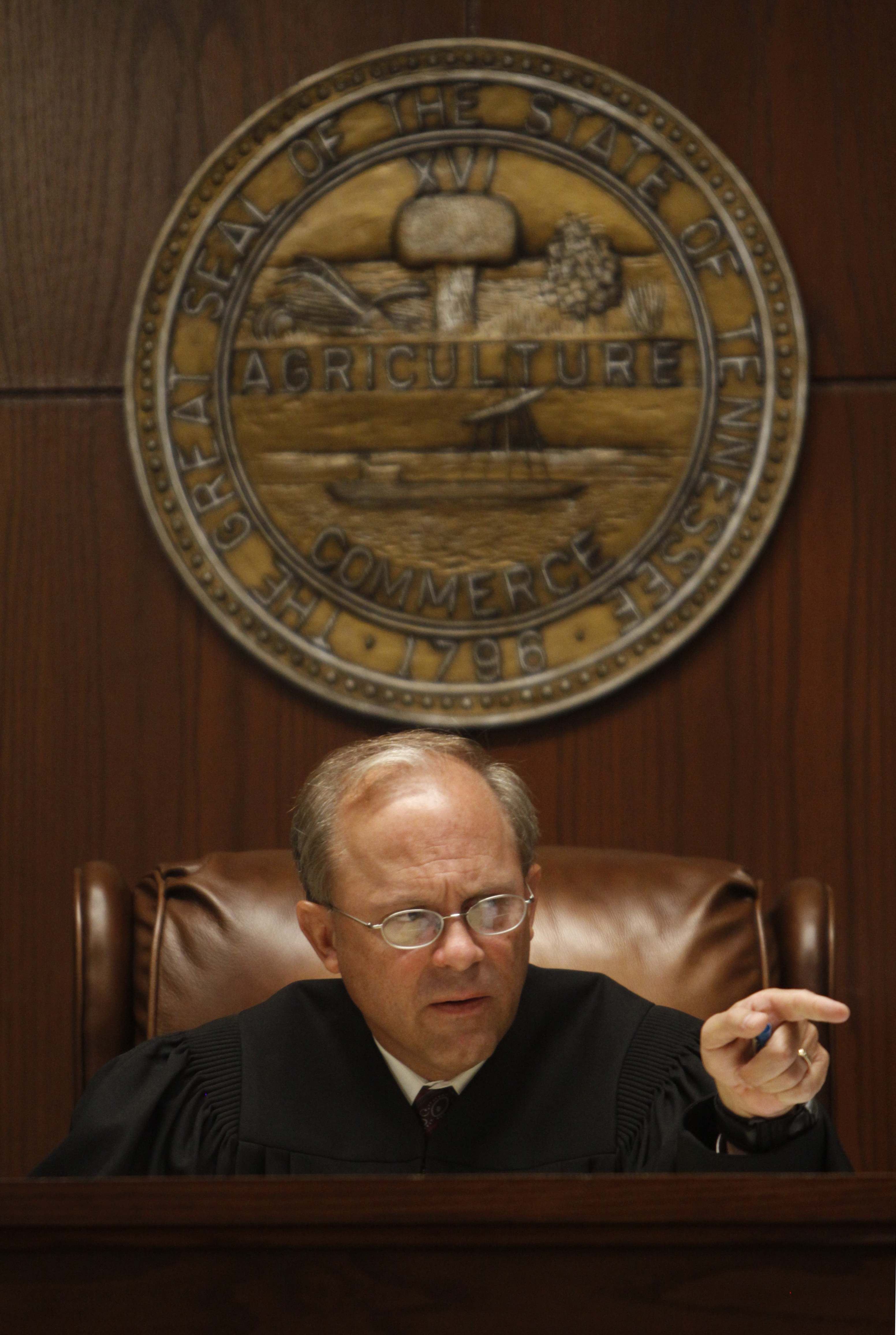The Hamilton County judge who refused to grant a Signal Mountain couple's divorce petition because of the U.S. Supreme Court's gay marriage decision has been publicly reprimanded by the Tennessee Board of Judicial Conduct.
When Chancellor Jeffrey Atherton ordered on Aug. 31, 2015, that Tennessee courts could not hear contested divorces because the Supreme Court ruling invalidated their jurisdiction, he violated two codes: compliance with the law and promoting confidence in the judiciary, according to the board.
He was one of three judges to be publicly reprimanded in 2015, according to the board, which filed the letter on Dec. 23.
Atherton, who was unavailable for comment Tuesday, made headlines in September over the divorce petition of Thomas and Pamela Bumgardner, a couple in their 60s who have no children together. Although Atherton listed many reasons in his refusal to grant the divorce, he raised several eyebrows with his comments on the Supreme Court, fresh off its landmark decision over the summer.
After penning the order, Atherton received notice of a complaint from the board's Disciplinary Counsel, according to a news release. Months later, it's still a mystery who lodged a complaint. Only the judge or the complainant can legally discuss it. And Atherton has never commented publicly on the motivations behind his order.
Furthermore, although the Disciplinary Counsel can proceed on an official complaint, that isn't the only requirement to launch an investigation. For example, if another judge calls, if someone sends an anonymous letter, or if a board member reads something in the newspaper, that's enough to move the counsel forward. In this case, media attention likely played a factor: When international outlets latched onto Atherton's order, it skyrocketed into public view.
The letter said Atherton was "fully cooperative" with the Disciplinary Counsel. During a meeting with the counsel, Atherton admitted the order "could have been misunderstood by the public as undermining its confidence in the independence, integrity and impartiality of the Judiciary."
There are lesser punishments. Atherton could have been given a warning, a cease-and-desist notice, or a private warning.
But it could have been worse, too. Atherton could have received a public censure - which is a stronger letter that sometimes includes a corrective action - or had charges filed against him.
Contact staff writer Zack Peterson at zpeterson@timesfreepress.com or 423-757-6347. Follow @zackpeterson918.

